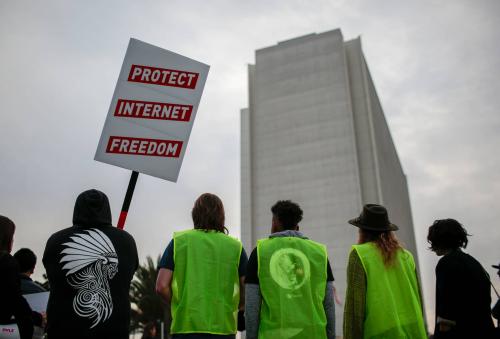This blog post originally appeared on U.S. News & World Report.
Yelp recently announced it had reached an agreement with the U.S. General Services Administration (GSA) to allow agencies to claim their pages and read and respond to reviews. This is yet another move by the current administration to become more transparent and effectively communicate with the public through new information technology opportunities. I believe transparency almost always leads to net positive outcomes and thus have been a fierce supporter of government’s efforts towards this end. However, creating Yelp pages for government agencies may not be the best way to increase transparency and communicate with the public.
You may not like the policy, but you should love the way the GSA is implementing it. Rather than spending millions of dollars of taxpayer money to create a dedicated website, which would have most likely faced the same challenges of Healthcare.gov, GSA decided to take advantage of the reliable, readily available and, most importantly, free platform offered by Yelp. While the benefits of this policy are yet to be shown, at least its implementation cost is very minimal.
The feedback provided through Yelp can potentially help the administration to assess the current level of quality its services at different locations and potentially monitor the effectiveness of its improvement policies. Consider the U.S. Postal Service: It has thousands of offices that provide similar types of services, and getting an overall evaluation of consumer satisfaction at each location can be of potential interest to decision-makers at USPS. They can run pilot trials in which different policies are implemented in different locations, while monitoring their effectiveness in increasing customer satisfaction through real-time Yelp reviews. Consequently, the most successful ones may be selected and implemented nationally.
“Political biases will affect people’s perception of service quality and dictate their attitude towards the agencies online.”
Critics may argue that expecting the above benefits is too optimistic. Unlike private businesses, federal agencies do not face market competition and thus do not have a strong desire to consider customer satisfaction and improve their operations. More importantly, implementing any kind of change is much more difficult in a federal agency as compared to a private business. Consider the changes in staff: FedEx and USPS may analyze their Yelp reviews and both realize that, with hiring additional staff, they can increase customer satisfaction. While FedEx can make and implement this decision almost instantly, USPS will have to persuade Congress to provide it with additional funding to hire new staff. On the other hand, reducing and reassigning staff is also much easier for FedEx. Federal employees have different kinds of contracts, and even Donald Trump can’t tell them “You’re fired!”
The ugly aspect of these online reviews, however, is how political biases will affect people’s perception of service quality and dictate their attitude towards the agencies online. Personal beliefs, which sometimes question the fundamental existence of an agency, can create more noise than signal in the reviews. It is not hard to imagine that many of the complaints against the Transportation Security Administration may actually stem from personal values such as privacy and the role of government in ensuring security, rather than how well its agents conduct their responsibilities.
In summary, reviewing federal agencies on Yelp is letting the genie out of the bottle. Once these reviews are made public, the agencies should consider them seriously and reorganize their structure to promptly respond to them–not only on Yelp but also in action. If federal agencies are only criticized publicly, while their problems as discussed in online reviews are ignored, their employees will be frustrated and public trust in government will be severed.



Commentary
Yelping Uncle Sam: Criticizing government through online reviews
September 1, 2015